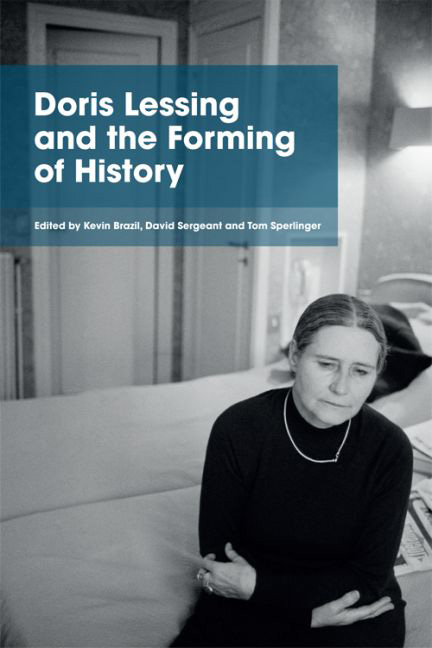Book contents
- Frontmatter
- Contents
- Acknowledgements
- Timeline
- Introduction
- 1 Early Lessing, Commitment, the World
- 2 ‘I'm an adolescent. And that's how I'm going to stay’: Lessing and Youth Culture 1956–1962
- 3 Sequence, Series and Character in Children of Violence
- 4 The Politics of Form: The Golden Notebook and Women's Radical Literary Tradition
- 5 Readers of Fiction and Readers in Fiction: Readership and The Golden Notebook
- 6 From The Grass is Singing to The Golden Notebook: Film, Literature and Psychoanalysis
- 7 ‘funny thing laughter, what's it for?’: Humour and Form in Lessing's Fiction,A
- 8 Lessing and the Scale of Environmental Crisis
- 9 Lessing and Time Travel
- 10 Lessing's Interruptions
- 11 Lessing's Witness Literature
- 12 A Catastrophic Universe: Lessing, Posthumanism and Deep History
- Select Bibliography
- Notes on Contributors
- Index
5 - Readers of Fiction and Readers in Fiction: Readership and The Golden Notebook
Published online by Cambridge University Press: 26 May 2017
- Frontmatter
- Contents
- Acknowledgements
- Timeline
- Introduction
- 1 Early Lessing, Commitment, the World
- 2 ‘I'm an adolescent. And that's how I'm going to stay’: Lessing and Youth Culture 1956–1962
- 3 Sequence, Series and Character in Children of Violence
- 4 The Politics of Form: The Golden Notebook and Women's Radical Literary Tradition
- 5 Readers of Fiction and Readers in Fiction: Readership and The Golden Notebook
- 6 From The Grass is Singing to The Golden Notebook: Film, Literature and Psychoanalysis
- 7 ‘funny thing laughter, what's it for?’: Humour and Form in Lessing's Fiction,A
- 8 Lessing and the Scale of Environmental Crisis
- 9 Lessing and Time Travel
- 10 Lessing's Interruptions
- 11 Lessing's Witness Literature
- 12 A Catastrophic Universe: Lessing, Posthumanism and Deep History
- Select Bibliography
- Notes on Contributors
- Index
Summary
Doris Lessing's The Golden Notebook is peopled by fictional readers who interpret and challenge the texts of others within a layered and ontologically unstable narrative frame. While the novel's innovative portrayal of authorship and its implications for authority have long been a rich source of critical debate, the equally intriguing if less studied correlative of this portrayal is the particular pressures Lessing's depictions of readership place on her readers. The Golden Notebook not only includes multiple types of readers but also invites, anticipates and critiques conflicting responses. The cumulative effect of the many acts of readership which take place within the novel is to challenge its readers to question the presuppositions upon which their own reading practice rests, the modes of reading they employ, and the ways in which these modes of reading are implicated in particular beliefs about the function of literature. In the context of a recent reinvigoration of academic interest in reading practices, Lessing's exploration of various models of and motives for readership forces us to interrogate the rationale and conventions of literary criticism. This essay examines how readership is depicted in The Golden Notebook to ask the question: what kinds of readers does Lessing want us to be? It is a question which cannot be answered without also considering her resistance to the authority invested in professional academic criticism, her relationship to distinctive cultures of reading, and the celebration of multifarious individualistic and non-instrumental approaches to readership which is not only explicitly articulated in the 1971 Preface to The Golden Notebook but also made implicit in the novel's structure. Lessing is fascinated by the persistent question ‘of what people see when they read a book, and why one person sees one pattern and nothing at all of another pattern’. While she may contemplate ‘how odd it is to have, as author, such a clear picture of a book, that is seen so very differently by its readers’, she nonetheless emphatically concludes that it is precisely this heterogeneity of reception which keeps the book ‘alive and potent and fructifying’ (2007: 20–1).
In her Preface to The Golden Notebook Lessing spoke of her desire to write a novel ‘which described the intellectual and moral climate’ of its time (2007: 10), responding to a historically situated crisis of faith in epistemological certainty.
- Type
- Chapter
- Information
- Doris Lessing and the Forming of History , pp. 71 - 83Publisher: Edinburgh University PressPrint publication year: 2016



